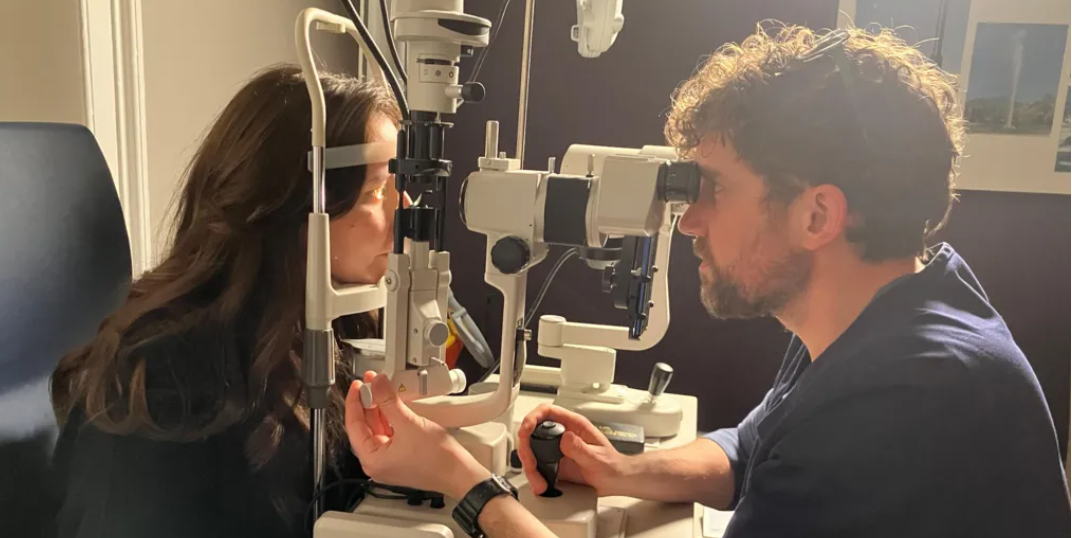Scientists in Scotland are developing an artificial intelligence tool that could enable opticians to detect early signs of dementia through routine eye exams, potentially revolutionizing the diagnosis of neurodegenerative diseases.
The research, led by a team at the University of Edinburgh in collaboration with Glasgow Caledonian University, utilizes high-resolution retinal images to assess brain health. By analyzing subtle changes in the retina’s blood vessels, the AI-driven system may be able to identify early indicators of conditions like Alzheimer’s disease, well before symptoms manifest.
“The eye can tell us far more than we thought possible,” said Dr. Baljean Dhillon, professor of Clinical Ophthalmology at the University of Edinburgh and co-lead of the NeurEYE project. “The retina serves as a biological barometer of brain health, and with simple, widely available imaging technology, we can potentially predict cognitive decline long before traditional symptoms appear.”
The research team has compiled a database of nearly one million retinal scans from optometry clinics across Scotland, making it the largest collection of its kind. With this data, scientists have trained an AI algorithm to detect changes in the retina that may signal the onset of dementia. The goal is to integrate this system into routine eye exams, providing clinicians with an accessible, non-invasive tool to identify patients at risk.
Dementia affects millions worldwide, disrupting memory, cognition, and communication. In the United States alone, Alzheimer’s disease—the most common form of dementia—impacts an estimated 6.7 million adults. While there is currently no cure, early detection can offer patients access to treatments that may slow disease progression and allow families more time to prepare for future care needs.
David Steele, a retired mechanical engineer from Scotland whose mother was diagnosed with Alzheimer’s, believes predictive screening could have eased his family’s struggle. “My mother’s worsening eyesight masked her underlying condition for years,” he said. “If the link between her vision loss and cognitive decline had been identified earlier, we could have planned for the challenges ahead and made better decisions about her care.”
Experts say that while the technology is promising, further clinical trials and regulatory approval are necessary before widespread implementation. If successful, the AI system could be deployed in optometry practices across the country by 2026, making early dementia screening as routine as checking for glaucoma or cataracts.
Ian Cameron, a specialist optometrist in Edinburgh, emphasized the importance of regular eye exams in detecting broader health issues. “The eye provides a window into the body’s overall health,” he said. “We can detect signs of cardiovascular disease, high blood pressure, diabetes, and even neurological conditions. With AI, we may soon be able to add dementia to that list.”
As research progresses, the prospect of diagnosing dementia through a simple eye scan raises hope for millions of patients and their families. For now, scientists continue refining the technology, hopeful that a breakthrough in early detection may soon be within sight.




